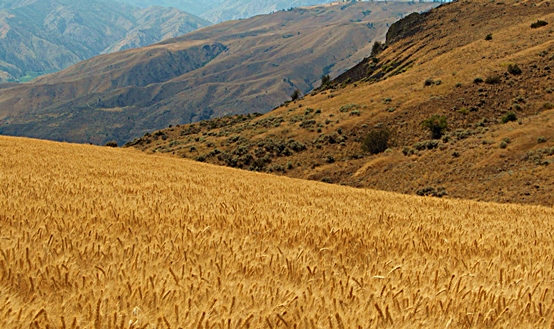|
Natural Health - Peak Performance - Longevity - Adventure
|
|
|

What are Organic Foods?First: Understanding Labels. Natural? Organic? What’s the difference?
Organic. Organic is a labeling term that indicates that the food has been produced through approved methods. These methods integrate cultural, biological, and mechanical practices that foster cycling of resources, promote ecological balance, and conserve biodiversity. Synthetic fertilizers, sewage sludge, irradiation, and genetic engineering may not be used. For example, the USDA organic seal indicates the food is at least 95% organic. A food with at least 70% organic ingredients may use the phrase, “Made with Organic Ingredients.” Other countries have similar standards for certified organic. Small local farms may not have the finances to apply for organic certification. These foods may be raised in alignment with organic standards but may not legally be able to use the organic seal. Natural. Meat and eggs labeled as “natural” indicate they have been minimally processed and contain no artificial ingredients. Only meat and eggs labeled as natural have to comply with USDA regulations. Other foods may use the term natural without complying with any standards or regulations. Natural is a fairly unregulated label. Organic Farming Methods
Chemically dependent agriculture harms the environment and puts human health at risk. Pesticide or fertilizer laden runoff from farmlands washes into rivers, lakes, and streams, contaminating waterways, and destroying habitat. Many chemicals are also toxic to health, and have been linked to respiratory problems, neurological disorders, cancer and reproductive problems. Health Benefits of Organic FoodsIncreased Nutrients. Research shows organic foods have more 25% more vitamins, minerals and phytonutrients because the top soil is better cared for and protected. Organic foods contain higher levels of beta carotene, vitamins C, D and E, health-promoting polyphenols, cancer-fighting antioxidants, essential fatty acids, and essential minerals. US government statistics indicate that levels of trace minerals in (non-organic) fruit and vegetables fell by up to 76% between 1940 and 1991. Competing athletes are wise to eat organic foods for peak performance. Decreased Obesity & Cancer Risk. Some fertilizers are now considered obesogens – endocrine disruptors that increase risk of obesity. Organic foods are not given added hormones; excessive hormone exposure increases risk of hormone related cancers in humans. 94% of US beef has added hormones. Added hormones are banned in Europe. Chemical free foods decrease toxin related cancers. Decreased Toxin Exposure. Organic food does not contain toxic pesticides, herbicides, antibiotics or added growth hormones. 77% of non-organic foods have pesticide residue. Several pesticides are linked to asthma and cancer. Children are more vulnerable to toxic exposure because of their lower body weight. Sewage sludge is not allowed to be used on organic farms; manure or compost is used instead. Sewage sludge contains heavy metals, carcinogens, pharmaceutical drugs and other pathogens. Non-organic slaughter houses will grind up residual parts and blood and feed this mixture back to animals, contributing to human mad cow disease. No Genetically Modified Organisms (GMOs). GMOs are found in 70% of non-organic foods. Currently GMO food is not required to be labeled. The four major GMO crops are soy, corn, canola and cotton. GMO food may increase allergic reactions, impair immune responses, damage intestinal and liver cells and decrease fertility. Adequate, long term health and safety testing has not been conducted with GMO food. Zero Irradiation. Many non-organic meats and spices are irradiated in the name of ‘food safety’ to kill bacteria and other pathogens. Irradiation may destroy vitamins and nutrients and produce chemicals such as benzene and formaldehyde. Non-organic slaughterhouses are overcrowded and filthy, hence the concern regarding food safety and the need to irradiate and pasteurize foods. Organic farms tend to be cleaner, more humane and have less fecal contamination. Humane Animal Treatment. Organic standards outlaw intense confinement and mutilation, such as de-beaking. Environmentally Friendly. Organic farming methods use less fossil fuels and do not pollute waterways and soils with toxic chemicals. The natural method of rotating crops helps conserve topsoil and preserve nutrients. Katie McKenna earned her Bachelor’s degree in Nutrition from Bastyr University. Katie began her nutrition career in 2003 working as a Community Nutritionist for the Quinault Indian Nation. She then earned a dual Master’s Degree, a cutting-edge combination of Nutrition and Clinical Health Psychology at Bastyr University and is the Founder of VIBRANT HEALTH of Seattle and Belleuve, Washington. More About Katie McKenna <-- back to top |
Organic Food Books Food Inc.: A Participant Guide: How Industrial Food is Making Us Sicker, Fatter, and Poorer-And What You Can Do About It, by Karl Weber
Science and Technology of Organic Farming, Allen V. Barker
The Whole Life Nutrition Cookbook: Whole Foods Recipes for Personal and Planetary Health, Second Edition,Alissa Segersten
The Nordic Diet: Using Local and Organic Food to Promote a Healthy Lifestyle, by Trina Hahnemann
Organic Food Articles
| |||||||||||||||||||||||||||||||||||
|
|
|
|
|
|
|
|
|
|
|
|
|
|
|
|
|
||||||||||||||||||||||